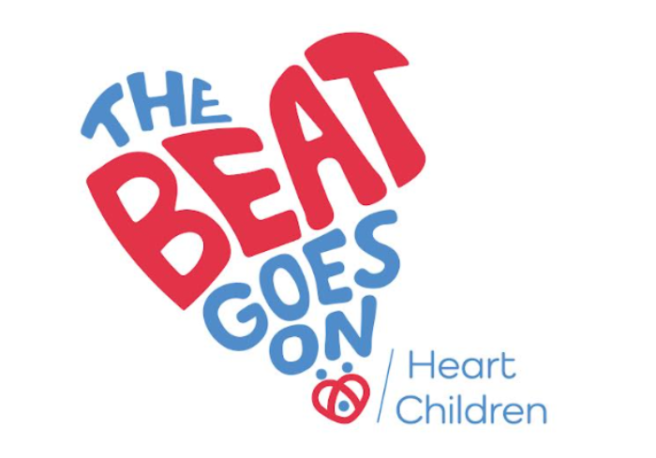
Charity set to host conference for people with Congenital Heart Disease
Global Congenital Heart Disease Awareness Month takes place this February.
To mark the important time, Heart Children, the national charity supporting children and young people with congenital heart disease (CHD), have confirmed that they’ll be hosting their annual conference, The Beat Goes On, once again this year. The event is set to take place on Saturday February 22 in Dublin.
CHD is the most common birth defect worldwide and relates to a range of structural defects that occur when a baby’s heart does not develop correctly during pregnancy. These defects have a detrimental impact on the way in which the heart pumps blood around the body.
Between 500 and 600 babies are born with the condition every single year in Ireland. This is almost three times the number of children who receive a diagnosis of childhood cancer.

There are over 40 different types of CHD and some children may be born with multiple forms of the disease. Half of those born with CHD will require at least one open-heart surgery, with some requiring repeat open-heart surgeries throughout their lifetime. Each year, the Children’s Heart Centre in CHI Crumlin carries out more than 450 open-heart surgeries.
Ireland’s Only CHD Conference for Patients and Families, The Beat Goes On conference, is aimed at Ireland’s 19,000 young people and adults living with CHD, as well as parents. The event has been created to bring people who are impacted by the condition together and will offer participants an opportunity to network with their peers. Attendees will also have the opportunity to meet and ask questions of the country’s CHD medical experts.
The event will take place in Chartered Accountants House, Pearse Street, Dublin 2, on February 22 and get underway from 9.30am-3.30pm.
For more information on the conference line-up or to register to attend free of charge, visit www.heartchildren.ie or telephone 01 8740990.
Michael Teehan (age 39) is originally from Clare and now living in Stillorgan in Dublin. He was diagnosed with a congenital heart defect shortly after birth and revealed, “My early years and teens were strewn with surgeries, some more invasive than others. My first life-saving surgery was at six days’ old. Then, at four months, I had a heart bypass.”

“By then, my mum had resuscitated me 32 times, sometimes on the road from Clare to Dublin. We moved to Dublin a year after I was born to be closer to Crumlin Hospital as emergencies were common and the trek from Ennistymon was just too far. My heart bypass lasted me until I was five years old, when I had major open-heart surgery. There have been many other surgeries since then, including having a pacemaker fitted when I was just 27.”
He continued, “The word ‘future’ is sometimes hard to imagine and I have always been aware that tomorrow is never guaranteed. In the years to come, I will need a heart and, potentially, a liver transplant but, for the time being, I control what I can control and look after myself as best as possible. I feel having a congenital heart condition has given me a lust for life and I try to appreciate each day. I don't sweat the small stuff.”
Heart Children board member and consultant paediatrician with expertise in cardiology at University Hospital Limerick, Dr Rachel Power, explained how almost all children diagnosed with CHD will reach adulthood as she stated, “In most cases, we still don’t know why congenital heart disease happens. Having a mother, father or sibling with the disease does slightly increase the risk above that of the general population. In a very small number of cases there can be maternal factors, such as poorly controlled diabetes or inappropriate anti-seizure medication, however, it is important to assure parents that these issues can be addressed.”

“Parents can also be reassured that most maternity hospitals in Ireland now offer a foetal anomaly scan at 20 weeks which will look at the four chambers of the heart. This is key in identifying the condition and ensuring that appropriate birth plans are in place, including access to a paediatric cardiology centre. As a result of advances in surgical techniques, the very welcome news is that over 97 per cent of children born with congenital heart disease are expected to reach adulthood. Indeed, there are more adult patients now living with the condition in Ireland than there are children.”
Sheila Campbell, CEO of Heart Children, has opened up about the importance of the conference as she explained, “The Beat Goes On conference offers an opportunity for young people and adults with congenital heart disease, living throughout Ireland, to come together for an event that will inform, empower and build connections. Unfortunately, some can go through life without knowing anyone else with the condition. Having the benefit of peer support and the phone number of someone to call or text when times get tough can be an invaluable aid.”
“The conference, which we run annually during Global Congenital Heart Disease Awareness Month, is a space to build our community, to create awareness of this common medical condition, and recognises the fact that it is one of the world’s most serious health issues at birth.”

Top Five Things to Know About Congenital Heart Disease
1. What is congenital heart disease? Congenital heart disease is a condition that arises when a baby’s heart structure does not develop correctly during pregnancy. The resulting structural abnormalities affect the normal flow of blood through the body. One in every 100 children born worldwide has congenital heart disease. There is no known cause as to why congenital heart disease occurs in the vast majority of cases but environmental factors and family history can play a part.
2. Is there a test for congenital heart disease? A total of 70 per cent of all diagnoses of congenital heart disease are picked up at the 20-week maternal scan. If an anomaly is detected by the medical team, the mother will be referred for an echocardiogram to assist in confirming the diagnosis.
3. How is congenital heart disease treated? There is no cure for congenital heart disease and all children will require lifelong care. Those born with non-complex disease may have one operation and never look back, while others will face a lifetime of surgical and non-surgical interventions, doctors’ appointments and hospital visits.
4. Do children continue to be monitored? Children continue to undergo regular heart checks at CHI Crumlin or at regional hospitals in Cork, Limerick and Galway, where there are paediatricians with expertise in cardiology. Typically, around the age of 16, young people will transfer to the adult congenital heart service in the Mater Misericordiae University Hospital in Dublin.
5. What supports are available to families? On discharge from hospital, there is little specialised support available to families of a child with congenital heart disease. However, the charity Heart Children works to support families, offering psychological support, play therapy, and financial support in certain circumstances. It also holds events that bring families together for social and peer-building opportunities.






